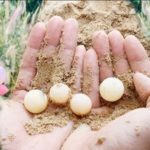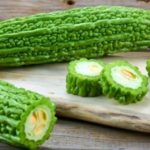The Nutritional Value of Quail Eggs
Quail eggs are considered a novelty food in some parts of the world but are widely used in Chinese medicine to treat various ailments. These small, nutritious eggs are the “product” of quail birds – a medium-sized bird found in abundance in Europe and Asia.
Quail eggs are quite small, only about 1/3 the size of industrial chicken eggs.
According to Healthline, the average weight of each quail egg is 9 grams. With this weight, each egg has the following specific nutritional content:
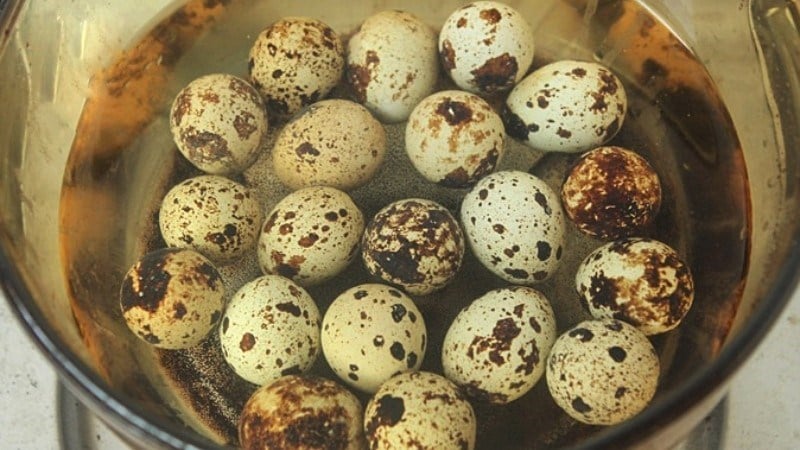
Calories: 14 calories
Protein: 1 gram
Fat: 1 gram
Choline: 4%
Riboflavin: 6%
Folate: 2%
Pantothenic acid: 3%
Vitamin B12: 6%
Iron: 2%
Phosphorus: 2%
Selenium: 5%
(Percentage of each nutrient compared to the daily requirements of an adult body).
Each egg provides a significant amount of vitamin B12, selenium, riboflavin, choline, and other nutrients for your daily nutritional needs.
Selenium and riboflavin are important nutrients for the body to convert food into energy. In addition, selenium also supports stable and healthy thyroid gland function.
Vitamin B12 and iron promote the functioning of the nervous system. They also play a major role in the formation of red blood cells to prevent anemia.
Meanwhile, choline plays a role in producing acetylcholine, a neurotransmitter that connects the nervous system and muscles.
It’s worth noting that despite providing a lot of nutrients, quail eggs only contain 14 calories. Therefore, they are an ideal food for those who want to lose weight.
Each quail egg contains only 14 calories but is rich in other nutrients to help keep your body healthy.
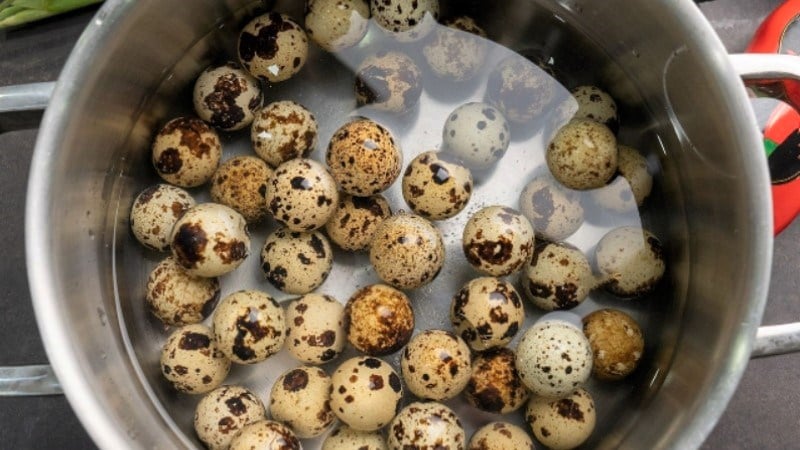
Tips for Boiling Quail Eggs Quickly and Easily
Add salt when boiling eggs
This is a very simple tip that many people use. When boiling eggs, just add about 1 teaspoon of salt, and the eggshells will be very easy to peel off. This will help ensure clean and beautiful eggs, and the egg peeling process will also be faster.
Boil with warm water and vinegar
Since quail eggs are quite small, to make it easier to peel the eggshells, you can boil the eggs with warm water and vinegar. This method will make the eggshells softer and crispier, making it easier for everyone to peel them quickly.
First, you bring a pot of water to a boil over medium heat. When the water is boiling, add the quail eggs and 1/2 tablespoon of vinegar, cover the lid, and cook for about 4-7 minutes (depending on the quantity). After that, turn off the heat and let it sit on the stove for another 3-5 minutes.
Boil with cold water and salted vinegar
In addition to the above method, you can also boil quail eggs with a mixture of cold water, vinegar, and salt. With this method, the quail eggshells will break into pieces when peeled, rather than being crushed, saving more time in the preparation process.
You just need to add all the quail eggs to a pot with enough cold water, about covering the surface of the eggs, along with 3 tablespoons of vinegar and a little salt.
Then, bring the pot to a boil over high heat and cook for 5-7 minutes, until the water boils, then continue to boil for another 5 minutes and turn off the heat to finish.
Shake the eggs after boiling
Shaking the eggs after boiling is a way to make peeling quail eggs easier. After boiling the eggs, we pour out the hot water and rinse with cold water to cool the eggs.
Next, put about 10 quail eggs into a glass jar with a lid and shake it vigorously up and down a few times until the eggshells are almost completely crushed. At this point, we just need to gently peel the eggs out and the eggshells will come off all at once.
Boil with lemon
Similar to vinegar, when boiling quail eggs with lemon, the acidity in the lemon will make the eggshells softer, making them much easier to peel off. During the process of boiling the eggs, you just need to add a few lemon slices to the pot, and when the eggs are cooked, just turn off the heat!
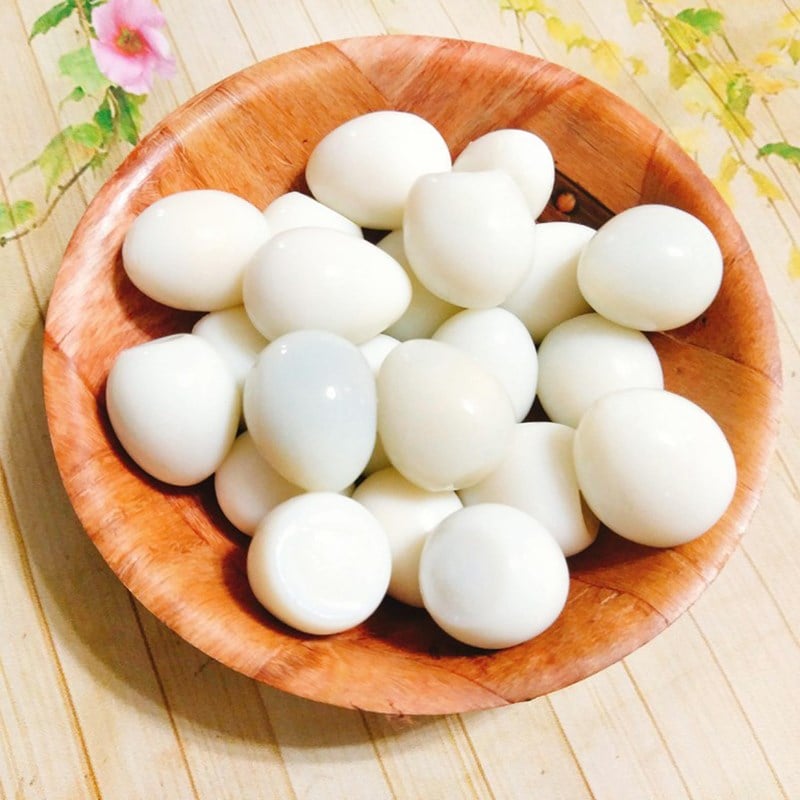
Quick Tips for Peeling Quail Eggs
Soak in cold water after cooking
To peel the eggs faster, after cooking, you can quickly put them in a bowl of cold water or ice water and soak for about 5 minutes, then use your hands to peel the shells off.
This method makes peeling the shells faster thanks to the expanding and contracting principle due to heat. After cooking, the eggs are hot, and if you immerse them in cold water, the temperature will change suddenly, making it easier to peel the eggshells.

























